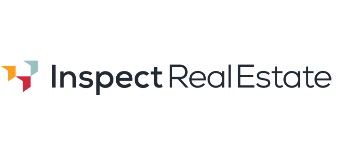How to start a real estate firm in Australia
Establishing a real estate firm in Australia can be a rewarding and lucrative venture, but it’s important to do your research and be prepared before diving in. Here are some steps to help you get started on your journey to becoming a successful real estate agency in Australia.
Learn more about IREOne
Real Estate Software for New Agencies
Obtain a real estate licence.
In order to operate as a real estate agent in Australia, you must first obtain a licence from the relevant state or territory’s regulatory body. This typically involves completing a course and passing an exam.
Choose a business structure.
There are several options for structuring your real estate firm, including sole proprietorship, partnership, and corporation. Consider factors such as liability, taxation, and your long-term goals when deciding which structure is best for you.
Create a business plan.
A solid business plan will help you map out your goals, target market, and financial projections. It’s important to be realistic and thorough in your planning, as this will help guide your decisions and ensure your business is set up for success.
Invest in property management software.
Managing a real estate firm can be a time-consuming and complex task, which is where property management software comes in. A comprehensive software package like IREOne Start-Up Package can help you streamline your operations and keep your business running smoothly.
Market your business.
Once your business is up and running, it’s important to get the word out and attract clients. Consider using a combination of traditional marketing techniques (such as print and radio ads) and online marketing strategies (such as social media and email marketing).
Starting a real estate firm in Australia requires careful planning, dedication, and the right tools and resources. If you’re ready to take the next step and book a demo of IREOne’s property technology software, just fill out the form below. Our team will be in touch to discuss your needs and how we can help you succeed in the exciting world of real estate.
IRE Powers Top Real Estate Agencies
Starting up a new agency & need software?
IREOne is perfect for startup agencies.
Book a FREE consultation now
Frequently Asked Questions
What are the requirements for starting a real estate firm in Australia?
In order to start a real estate firm in Australia, you will need to obtain a real estate licence from the relevant state or territory. This usually requires completing a qualification course approved by the relevant regulatory authority, as well as passing a background check and any other requirements set by the authority.
Can I start a real estate firm as a sole trader?
Yes, it is possible to start a real estate firm as a sole trader in Australia. This means that you will be the sole owner and operator of the business, and you will be responsible for all aspects of the business, including managing finances, marketing, and day-to-day operations.
Do I need to have a physical office to start a real estate firm?
It is not strictly necessary to have a physical office to start a real estate firm in Australia, but it can be helpful to have a professional place to meet with clients and conduct business. Many real estate firms in Australia operate out of co-working spaces, serviced offices, or virtual offices, which can be more cost-effective than renting or buying a traditional office space.
How do I market my real estate firm to potential clients?
There are many ways to market your real estate firm to potential clients, including:
- Building a website and maintaining an active presence on social media
- Advertising in local newspapers and real estate publications
- Networking with other industry professionals and participating in local events
- Offering excellent customer service and asking satisfied clients to refer you to their friends and family
What are the ongoing expenses for a real estate firm in Australia?
Ongoing expenses for a real estate firm in Australia may include:
- Rent or mortgage payments for office space
- Business insurance
- Marketing and advertising costs
- Professional development and training for employees
- Software and technology expenses
- Legal and accounting fees
- Salaries and wages for employees



